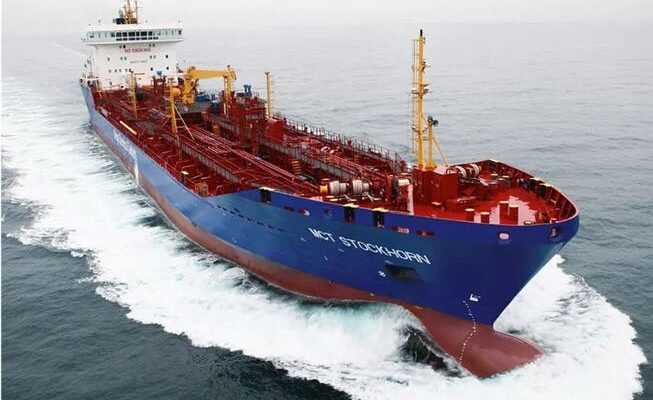The government sent its definitive proposal for the introduction of a tonnage tax for deep-sea shipping to parliament on Wednesday. The main argument for the strange construct: Most EU countries have it too.
Deep-sea shipping companies should in future be able to be taxed according to their transport capacities.
Imagine if banks no longer paid their taxes on the basis of their profits, but based on the size of their vaults. And computer companies’ taxes would be based on the number of lines of software they produce. For machine builders, the weight of their products would be decisive in the future. And for insurance companies, the length of their customer list. The Federal Council is seriously proposing this new tax principle for the ocean shipping industry. The government submitted its final proposal with the message to Parliament on Wednesday adopted.
According to the proposal, companies in the industry should in future have the option of switching from taxing profits to being taxed on the basis of their transport capacities. The freight volume times the operating days would result in the tax substrate. This would be taxed at the regular profit tax rate – with a discount of up to 30 percent for environmentally friendly operation.
High seas nation Switzerland
The introduction of the “tonnage tax” is intended to enable lower taxation and thus make Switzerland a more attractive location for the industry. Even without a direct connection to the sea, Switzerland is officially a high seas nation. According to industry information, around 60 companies with a total of around 900 ships are based in Switzerland – which makes Switzerland number 4 in Europe and number 9 in the world.
The basic idea of the tonnage tax seems bizarre and, with the special solution for an industry, is also constitutionally dubious. Since the constitution allows room for interpretation here and this room for maneuver was also used by one of the commissioned reports, the Federal Council describes the matter as “justifiable”. This legal qualification is almost an admission of bad conscience.
Compared to the draft for consultation, the Federal Council has made the tonnage tax more attractive for the industry. According to the original proposal, the special tax would only have been an option for companies that have at least 60 percent of their transport capacities flying the flag of Switzerland or an EEA country. According to industry representatives, the matter would hardly have been an option for many companies. Now this flag requirement has largely been eliminated. Declared reason: There would have been problems under international law due to geographical discrimination. Now the only requirement is that the flag of the ships concerned belongs to a country that is subject to the relevant four international maritime conventions.
The others do too
The Federal Council provides a central argument for the introduction of the tonnage tax: Many other countries would also have this construct. These countries include 21 EU members, Norway and the United Kingdom, among others. According to analysis By 2020, international shipping companies in Europe will pay an average of around 11 percent of reported profits as taxes – which is far below the ordinary profit tax rates.
Due to the tonnage tax, the federal government expects only minor short-term tax losses; in an earlier estimate he spoke of 10 million francs per year, but now he no longer dares to guess numbers. There is also the hope that if the privilege brings about new settlements or prevents emigration, the short-term losses would quickly be overcompensated.
Nevertheless, the proposed special treatment of an industry under the motto “the others do it too” comes with a stale aftertaste. In the consultation, however, the big bourgeois parties and the majority of the cantons spoke out in principle in favor of introducing a tonnage tax; a main driver was the canton of Geneva, where many of the affected companies are based. But the concrete design should still give a lot to talk about.
